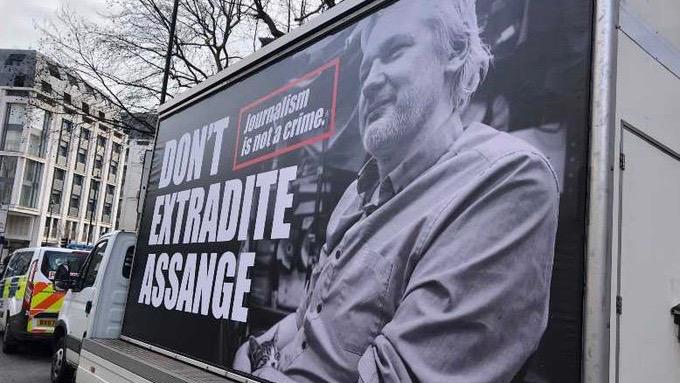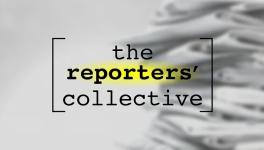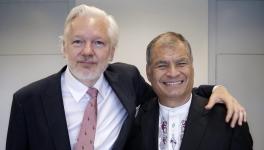UK Minister Priti Patel Clears Assange’s Extradition Order to US; Counter Appeal Likely

London: The UK government on Friday gave the go-ahead for WikiLeaks founder Julian Assange to be extradited to the US to face charges over the alleged leak of classified documents related to the wars in Iraq and Afghanistan.
UK Home Secretary Priti Patel gave the requisite ministerial sign-off for the 50-year-old Australian national’s extradition order after several stages of court appeals right up to the Supreme Court.
However, a counter appeal by Assange’s legal team is expected to restart another round of legal battle.
“On 17 June, following consideration by both the magistrates court and High Court, the extradition of Mr. Julian Assange to the US was ordered. Mr. Assange retains the normal 14-day right to appeal,” a UK Home Office spokesperson said.
“Under the Extradition Act 2003, the Secretary of State must sign an extradition order if there are no grounds to prohibit the order being made. Extradition requests are only sent to the home secretary once a judge decides it can proceed after considering various aspects of the case,” the spokesperson said.
“In this case, the UK courts have not found that it would be oppressive, unjust, or an abuse of process to extradite Mr. Assange. Nor have they found that extradition would be incompatible with his human rights, including his right to a fair trial and to freedom of expression, and that whilst in the US he will be treated appropriately, including in relation to his health,” the spokesperson added.
Assange has denied any wrongdoing all along and has been held at Belmarsh high-security prison in London since 2019 when he was taken into custody from the Ecuadorian Embassy where he had sought asylum. He had been living in the embassy since 2012 to avoid extradition to Sweden to face sex offence allegations, which he denied and were eventually dropped.
“Today is not the end of the fight. It is only the beginning of a new legal battle. We will appeal through the legal system," WikiLeaks said in a statement on Twitter.
"This is a dark day for press freedom and for British democracy," it said.
Assange, an Australian national, married his South Africa-born wife Stella Moris, 38, in March this year while in prison. The couple have two sons together – four-year-old Gabriel and two-year-old Max.
"Anyone in this country who cares about freedom of expression should be deeply ashamed that the Home Secretary has approved the extradition of Julian Assange to the United States, the country that plotted his assassination," Moris said following Friday's announcement.
"Julian did nothing wrong. He has committed no crime and is not a criminal. He is a journalist and a publisher, and he is being punished for doing his job,” she added.
The US indictment against him claims Assange conspired to crack a scrambled password, known as "hash", to a classified US defence department computer.
Assange denies the charge and maintains there is no evidence anyone's safety was put at risk. The charges date back to 2010 and 2011 and Assange's legal team have claimed that classified documents published by Wikileaks, which related to the Iraq and Afghanistan wars, were in the public interest.
In the long-drawn legal battle, the High Court in London had overturned a lower court's decision that Assange could not be extradited due to concerns over his mental health, noting that the American government’s “solemn undertakings” were enough to guarantee humane treatment.
In January, Assange secured the right from the High Court in London to seek an appeal against that ruling in the Supreme Court, based on a point of law that is of "general public importance".
The specific point certified for the potential consideration by the Supreme Court was: “In what circumstances can an appellate court receive assurances from a requesting state which were not before the court of the first instance in extradition proceedings”.
A panel of three judges of the Supreme Court considered the application on paper and refused permission to appeal on the basis that “the application does not raise an arguable point of law”.
In March, the Supreme Court ruled that Assange's case raised no legal questions over assurances the US had given the UK over how he is likely to be treated, leaving it to the Home Secretary to sign off on the extradition order once referred back by the magistrates’ court.
Get the latest reports & analysis with people's perspective on Protests, movements & deep analytical videos, discussions of the current affairs in your Telegram app. Subscribe to NewsClick's Telegram channel & get Real-Time updates on stories, as they get published on our website.
























